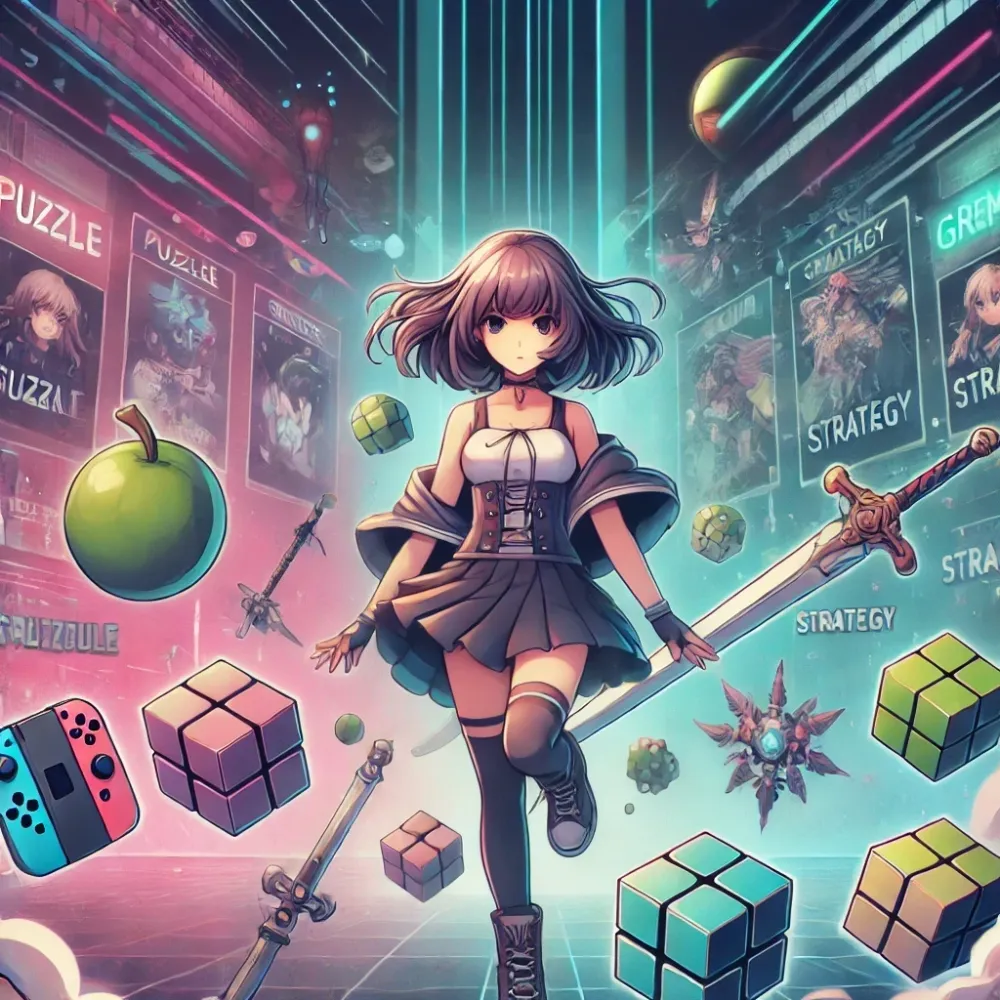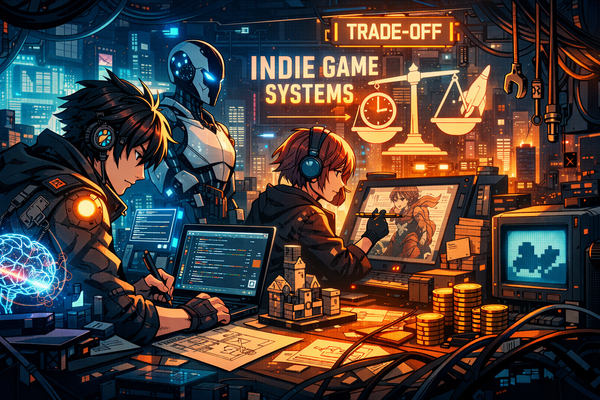Indie games that defy genre expectations: The rise of hybrid gameplay
Indie games have long been trailblazers in the gaming industry, pushing creative boundaries and experimenting with unique mechanics. One standout trend in this innovative space is the use of hybrid gameplay, where developers blend elements from multiple genres to craft new and engaging experiences. These games not only challenge conventional norms but also deliver gameplay that feels fresh, immersive, and complex. This approach is central to the continued growth of indie gaming as developers strive to differentiate their creations from mainstream titles.
The appeal of hybrid gameplay
Combining different genres in a single game offers a variety of benefits for both developers and players. For developers, hybrid gameplay provides an opportunity to explore new mechanics and create distinctive experiences that stand out in a crowded market. For players, the mix of gameplay styles ensures that each session feels dynamic and multifaceted, demanding different strategies and adaptations. This novelty is a major draw, providing an experience that cannot be replicated by single-genre games.
Notable examples of genre-blending indie games
The success of hybrid gameplay can be seen in several popular indie titles that have effectively merged genres to create memorable gaming experiences:
- Hades: Developed by Supergiant Games, Hades exemplifies hybrid gameplay by combining roguelike mechanics with fast-paced action and a compelling narrative. Players engage in dungeon crawling while advancing the story, even after repeated defeats. This approach adds layers of complexity and keeps players invested in the game.
- Bastion: Another title from Supergiant Games, Bastion seamlessly merges action RPG elements with a dynamic narration system that reacts in real-time to player actions. This blend enriches gameplay and storytelling, making players feel more connected to their journey.
- Slay the Spire: Slay the Spire is a unique fusion of deck-building mechanics and roguelike progression. Players construct strategic decks to navigate challenging dungeons, adding a strategic layer to traditional roguelike gameplay.
- Dead Cells: Often called a "roguevania," Dead Cells incorporates the exploration and progression mechanics of Metroidvania games with the permadeath and procedural aspects of roguelikes. The result is a game that challenges players with both exploration and high-stakes combat.
- Loop Hero: This game stands out for blending deck-building mechanics with auto-battler gameplay. Players place cards to shape the landscape and control encounters, creating an ever-changing gameplay loop that encourages strategic thinking and adaptability.
Benefits of hybrid gameplay
The fusion of multiple genres offers several distinct advantages:
- Enhanced engagement: By requiring players to switch between different types of gameplay mechanics, hybrid games keep players engaged and invested in the experience. This variety demands more from players, leading to a deeper sense of connection and satisfaction.
- Increased replayability: Hybrid mechanics encourage players to experiment with different strategies and solutions. Each playthrough can offer a new experience, keeping the game fresh and enticing players to return to it over and over.
- Broader appeal: By merging elements from various genres, developers can reach a wider audience. For instance, a game that incorporates both strategic planning and action-packed combat may appeal to fans of strategy games and action-adventure titles alike.
Challenges of implementing hybrid gameplay
While hybrid gameplay provides numerous benefits, it also comes with challenges:
- Balancing gameplay complexity: Merging different gameplay styles can result in complex mechanics that may overwhelm players. Developers need to ensure that the game remains accessible while still providing depth and challenge.
- Maintaining gameplay flow: Ensuring that the transition between different gameplay elements feels natural is critical. If not done carefully, the game can feel disjointed or unbalanced, disrupting the player's experience.
- Technical demands: Incorporating multiple gameplay mechanics can require additional coding and testing. Developers need to ensure that the game's performance is consistent and that all elements function smoothly together.
The future of hybrid gameplay in indie games
The trend of hybrid gameplay is likely to continue growing as indie developers seek to push creative boundaries and distinguish their work from mainstream titles. The willingness of indie studios to experiment and innovate positions them at the forefront of this movement. As more games explore genre-blending mechanics, the indie game landscape will continue to evolve, offering players fresh and unexpected experiences that challenge traditional gameplay boundaries.
The rise of hybrid gameplay in indie games reflects the ingenuity and boldness of developers who dare to experiment beyond traditional genre limits. By blending different gameplay mechanics, indie developers create richer, more engaging experiences that stand out in the gaming market. This trend is reshaping the way games are played and appreciated, making hybrid gameplay an essential component of the future of gaming.




